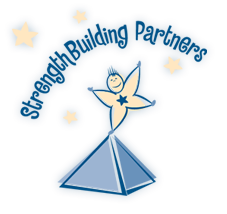School Staff: StrengthBuilding® Topics
You may choose to select one or more social sciences topics as a stand-alone training for staff members who will not be participating in StrengthBuilding Essentials, but who would benefit from learning about the specific subject. These interactive trainings show you how to incorporate the latest in social sciences research in your work with children.
Multiple Intelligences
The theory of Multiple Intelligences was developed in 1983 by Harvard professor Howard Gardner. After much research and critical examination, this theory proposes that the traditional belief about intelligence is just one piece of the puzzle that defines human intelligence, potential and abilities. Dr. Gardner proposes there are actually a minimum of eight different intelligences that work together in varying degrees in each of us.
This workshop examines each of these intelligences and discusses how they impact our ability to learn, create and understand our world. You will use the Multiple Intelligences Inventory to learn about you and your Multiple Intelligences. Learning Gardner’s Theory of Multiple Intelligences will further assist you in finding strengths in yourself and others as well as provide you with a greater understanding of your past, your present and your future.
Emotional Intelligence
Daniel Goleman, author of the book entitled Emotional Intelligence, defines Emotional Intelligence (EI) as “the ability to monitor one's own and others' emotions, to discriminate among them, and to use the information to guide one's thinking and actions.”
In the waning years of the 20th century, researchers began to construct tests to assess our ability to understand, predict and manage the way we respond to emotions. The more skilled we are in responding to emotions, the higher our EI becomes. Studies have consistently shown that the higher our EI, the happier and more successful we are.
This workshop explores the world of EI, teaching how it impacts your life, how to measure your own EI, and how to develop it in yourself and others.
Developmental Assets
In 1989 the Search Institute began to research what adolescents need to grow and thrive. The Institute conducted an extensive review of the literature and compiled surveys that were administered to parents, teachers, and adolescents across the United States. The research led to a list of 40 Assets--40 ingredients that are key in the healthy development of children--published in 1996 in Starting Out Right: Developmental Assets for Children.
This workshop teaches the 40 Developmental Assets as well as helps you learn how to develop assets in children, how to help parents become aware of the importance of each asset, and how to influence the development of these assets within children with whom you work.
The Developmental Stage of Adolescence
Adolescence is a normal and necessary stage of development that begins in some youth around the age of 12 and continues well into their late teen years. Many adults romanticize their teen years, remembering their first love, getting their driver’s license and feeling their first sense of independence from their parents. Adolescence is all that and, oh, so much more.
Adolescence is a time when children begin to look and feel more like adults but without brain structures to support their adult actions. It is a time when teens say “I don’t need you any more” at the same time that they are shaking in their boots that you might actually believe them and not be there when they so desperately need you to be. Adolescence is a confusing time for the adolescent as well as for the adults in their lives.
This workshop sheds light on this powerful stage of development and offers suggestions about how to successfully assist teens through it.
Participants: 4 to 30
Location: on-site at your offices or a school
Includes:
- Three hours of interactive training for each topic
- Assessments and curriculum materials
Call 546-9296 for more information, or email Pamela Clark-Raines, pamcr@strengthbuilding.org


